Martial Art Movies to Watch Again
Kung Fu and Wuxia Movies to Watch if You Love 'Shang-Chi'
Did 'Shang-Chi' exit yous craving more kung fu and wuxia movies? And then cheque out these to proceed the excitement rolling.
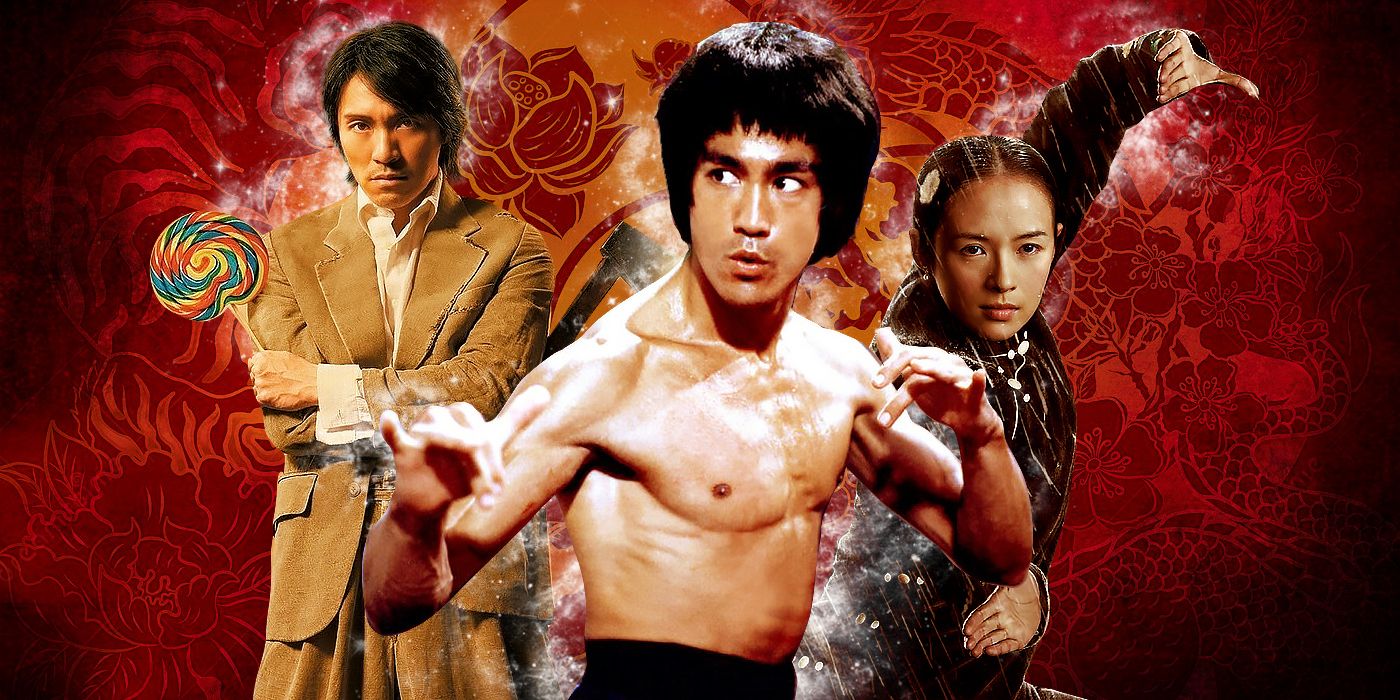
Marvel'due south latest origin story – Shang-Chi and the Fable of the Ten Rings – is now out in theaters, and those who decided to bank check it out were likely left smitten by arguably the MCU's best action choreography and abundance of fantastical elements. Perhaps y'all were left and so smitten that now you have an itch to check out fifty-fifty more films of the kung fu or wuxia (a form of Chinese fiction that focuses on martial arts heroes in ancient Communist china) variety that you have to scratch if life is to go on.
Whether you've seen a few movies, are looking to expand your noesis, or simply desire more than Michelle Yeoh and Tony Leung, I have a listing that may hopefully help yous out. Combining sweeping landscapes, compelling drama, no brusk amount of humour, and, most importantly, fight sequences to blow your hair back, here are ten movies (out of many, many more) that are worth checking out if Shang-Chi left you craving kung fu excellence.
The Assassin
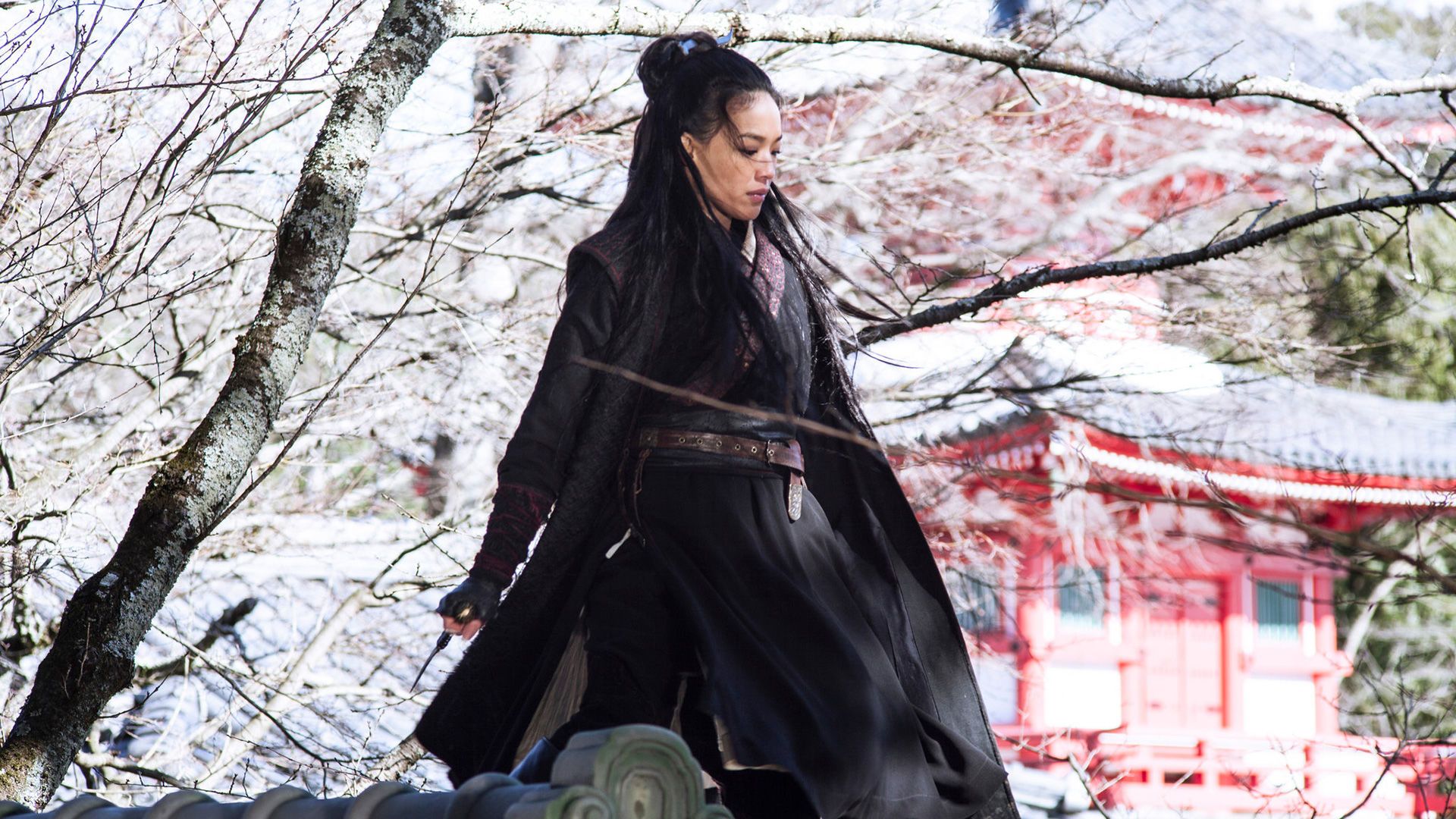
Many of the movies on this list feature plenty of intense action sequences, big personalities, and plenty of melodrama. This is not i of those movies. Hou Hsiao-hsien'south beginning foray into wuxia, The Assassin (adapted from the classic Chinese short story, "Nie Yinniang"), lives for stillness emphasized by long takes on the actors, and the arresting costumes, art direction, and natural landscapes. A story near a adult female raised from a young age to impale without question – merely is put in a position where her remaining humanity forces her to alter grade, the compellingly stoic Shu Qi inappreciably has whatsoever dialogue as the titular assassinator Yinniang. Instead, she lingers out of sight, listening in on political intrigue or waiting to bounciness in for a fight – of which Hsiao-hsien handles chop-chop or even far out of view.
Nearly an antithesis to many of the other movies on this list, Hsiao-hsien favors letting the humans at its core be without needing to jump into action, letting the viewer bask in gorgeous scene afterwards scene defined by conversation or pure silence. In the landscape of wuxia films, The Assassinator is a marvel of craftsmanship and cinematography, looking and moving in such captivating ways it makes up for its deliberately slow stride.
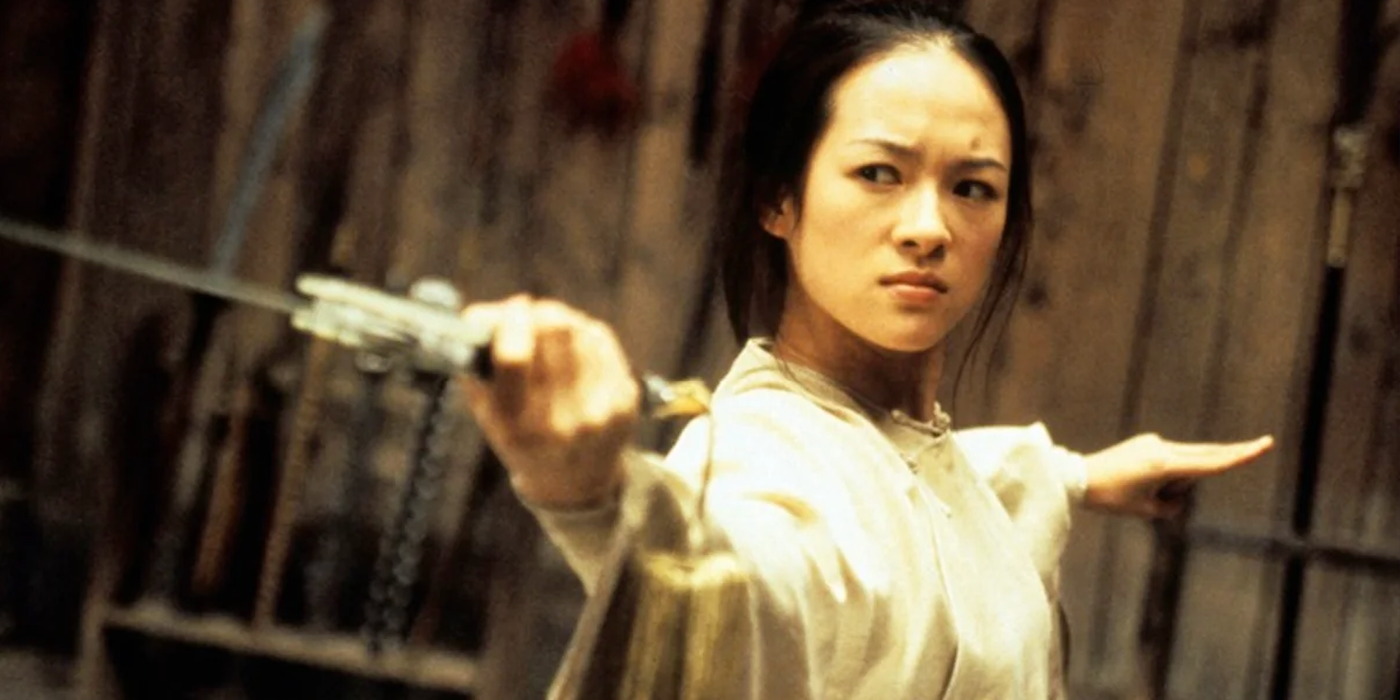
A listing similar this without including the groundbreaking Crouching Tiger, Hidden Dragon is like making a list of the greatest Television receiver shows ever without including The Sopranos: What'southward even the bespeak? An accommodation of the novel of the same name by Wang Dulu, Ang Lee's wuxia masterpiece is still lauded over 20 years later for a reason, and that reason is that it still holds upward as being very, very practiced. The iconic fight choreography from Yuen Woo-ping – performed by the cast including Michelle Yeoh, Grub Yun-fat, Zhang Ziyi, Cheng Pei-pei, and more – is a magical sight to behold; The score from Tan Dun is fragile and unobtrusive; The cinematography from Peter Pau makes every setting await regal and; the cast is top-notch, selling the palpable drama throughout a potent, generally female-led story that examines, amongst several things, gender roles in Mainland china.
Everything about it is operating at such a perfect level. Lee's work bringing it all together is zippo short of a masterclass, and when you lookout information technology, whether it be for the offset time, the start time in 20 years, or for the tenth time, the excellence only oozes off each scene. Masterfully playing as a blend of fantasy and period drama, there's no mistaking why Crouching Tiger stands tall on the pedestal information technology does today.
Enter the Dragon
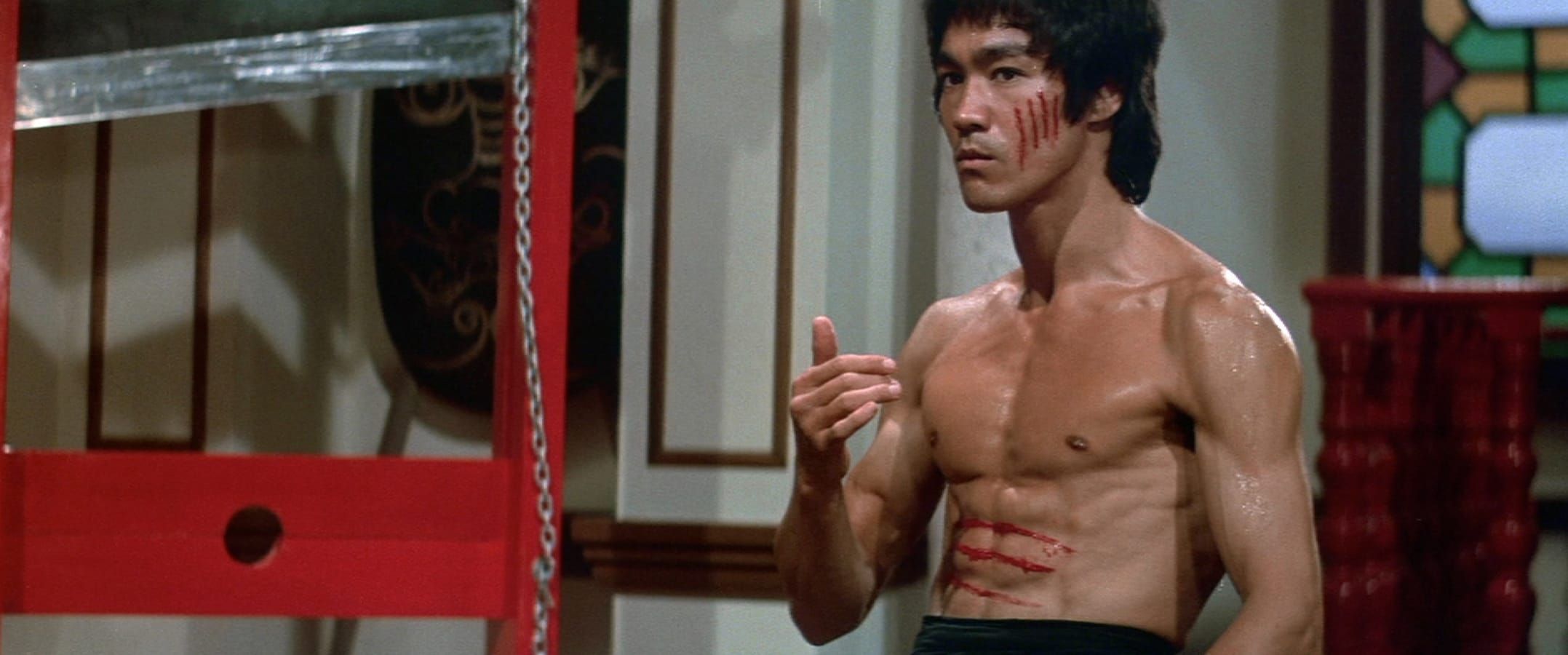
Martial arts in movies – likewise every bit boob tube, video games, competitive sports, etc. – wouldn't be where information technology'southward at today without the influence of Bruce Lee, with 1973's Enter the Dragon being his most seminal (and unexpectedly concluding) work. The groundbreaking blockbuster from director Robert Clouse blends the styles of spy genre fabricated popular by the Bond movies and R-rated sensibilities of blaxploitation films, and stars Lee (who as well choreographed the fights) equally a martial artist named Lee who is sent to compete in a karate tournament put on by a criminal offence lord (Shih Kien) and former disciple of the same Shaolin Temple as Lee. Merely fifty-fifty everyone involved seemed very aware of how the plot isn't what audiences are coming for. What you lot come for is the magnetism of Lee, whose cool intensity easily outshines other talents similar Jim Kelly and John Saxon.
His fists are fast, his feet are fleet, and his free energy and charisma are undeniable. With all there is to offer nowadays in the martial arts genre, at that place's still zilch like watching Lee throw effectually thugs with his trademark precision and persona, with Clouse knowing total well when to concur on to his expressions to let the ability of his presence take concur. If yous're hoping to expand your noesis of martial arts films, Enter the Dragon is a necessary work featuring the genre'due south biggest star ever.
Fist of Legend
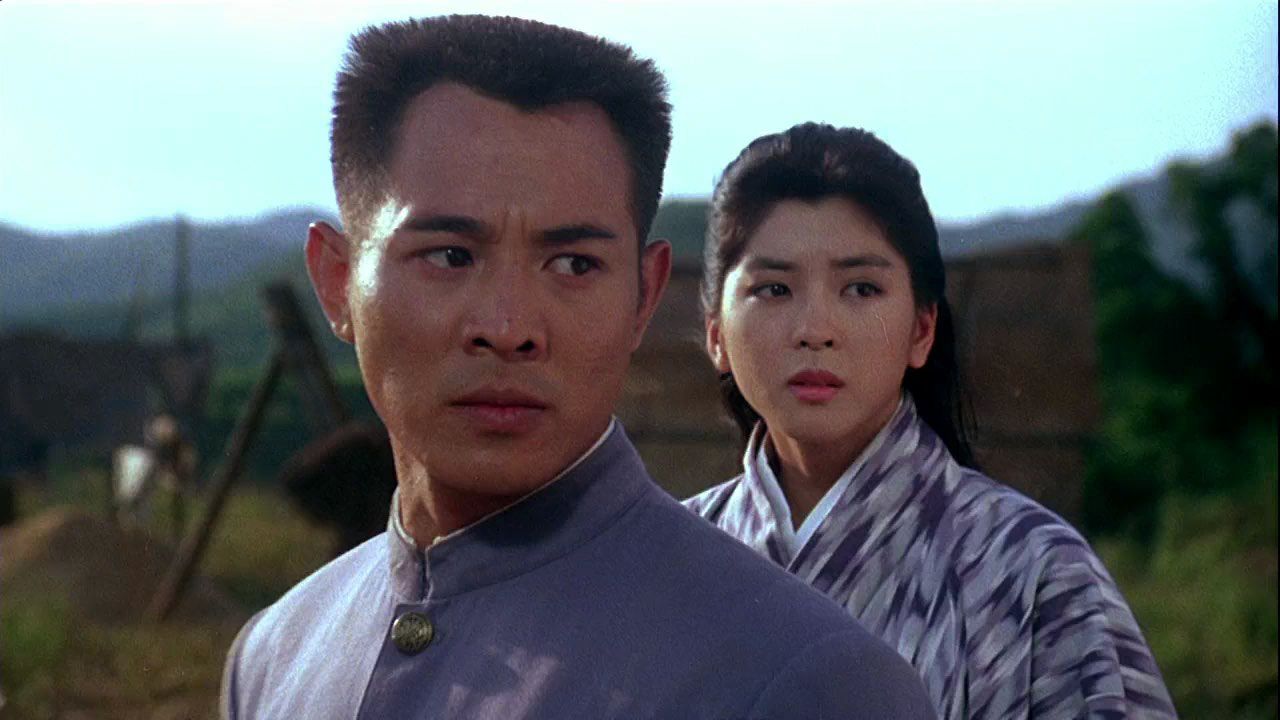
If y'all're looking to expand your knowledge of the kung fu genre, you lot can never go wrong with some vintage Jet Li. A remake of Bruce Lee'south Fist of Fury, Fist of Legend from managing director Gordon Chan is set during the Japanese occupation of Shanghai in the late 1930s, with Lee playing Chen Zhen, a martial artist investigate the decease of his master at the hands of a Japanese fighter. Zhen's journey takes him from one bout to another, and Yuen Woo-ping's ever sensational choreography doesn't hold back in showcasing Li's talent equally a fighter.
The outset sequence alone - set in a school wherein a grouping of Japanese men are trying to strength out Zhen and the residuum of the students merely because they're Chinese – finds Li taking down fools with steadfast precision. Fights just become bigger and more intense, and with each striking, you tin can both come across and experience the bones breaking, meshing brutality with fashion. It's a hard film to runway down on streaming/rental platforms, but fits with a story that explores anti-colonialism themes and interim as smashing an instance every bit any of Li's fighting and star power, Fist of Legend is more worth hunting down.
The Grandmaster
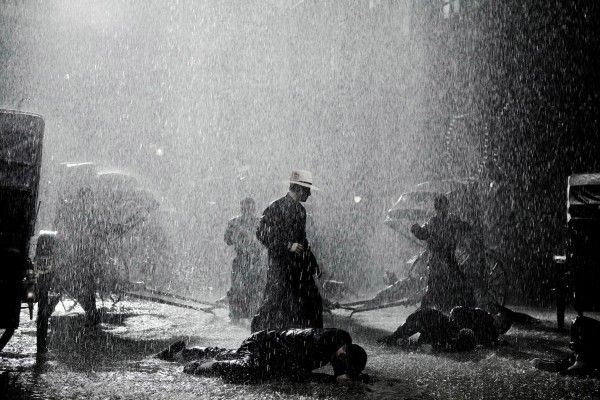
While the Ip Man movies starring the endlessly impressive Donnie Yen may exist the most popular films to mythologize the famed teacher of Bruce Lee, another take on the man and his life, The Grandmaster, is the far more fascinating picture. Reuniting him with his In the Mood For Love director Wong Kar-wai, Tony Leung stars equally the Fly Chun master in a picture show that sidesteps the triumphant heroics seen in 2008's Ip Man in favor of a more complex examination of his life. Examining what it means to truly exist a martial arts master, taking on battles that come not only from challengers but life equally a whole, Kar-wai's moving-picture show operates like a sweeping ballsy filled with dramatic depth.
Sharing much of the screen is Zhang Ziyi in non just her best performance only perhaps one of the best on this whole list. Loved watching Leung's flirtatious fight with Fala Chen in Shang-Chi? But look until you encounter him and Ziyi exchange glances between punches. And on that note, The Grandmaster doesn't skimp on the action. Beginning with an opening brawl in the rain and into the smoky rooms of a brothel, Leung throws down in swift, kinetic fights, made all the more than stunning thanks to the Oscar-nominated cinematography of Philippe Le Sourd. A sequence wherein Ziyi steps onto a train platform, dressed in a fur coat, and proceeds to fight with Zhang Jin is picture palace at a very special kind of peak.
Hero
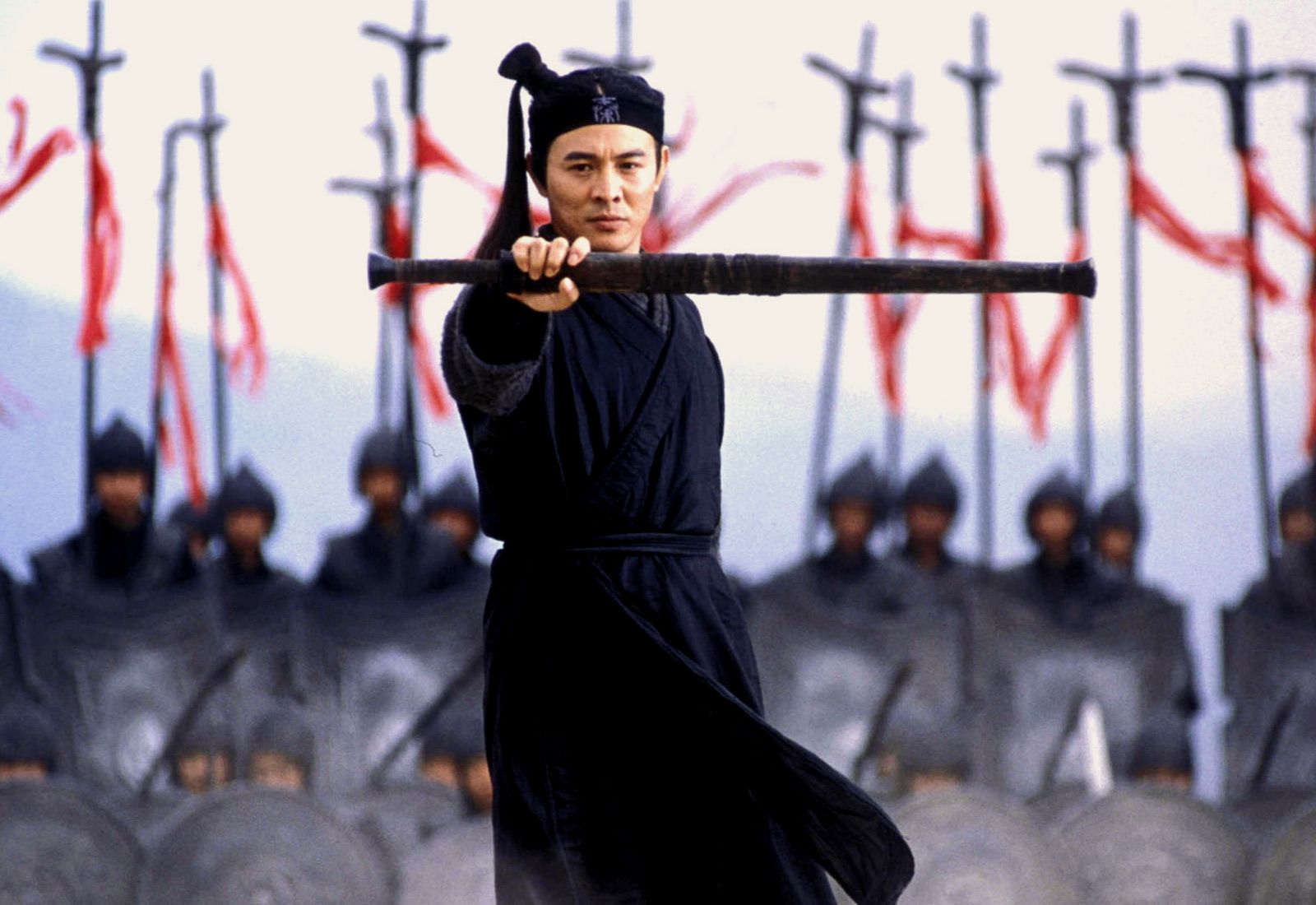
Much in the mode of Crouching Tiger, Hero from managing director Zhang Yimou blends stirring drama with a romanticized version of ancient China – filled with high-flying acrobatics. But Yimou delivers on the spectacle with a far larger sense of grandeur, blending fast-paced fights from performers Jet Li, Donnie Yen, Zhang Ziyi, Tony Leung, and Maggie Cheung, and uses visual effects and sublime choreography to make them all feel larger than life. This befits the Rashomon-style story structure, with Li'southward Nameless acting as an unreliable narrator, with a tale that consistently begs the question of what is truth and what is deception.
Working with cinematographer Christopher Doyle, Yimou breaks up his movie into color-coded acts, making scenes look uniquely gorgeous. A wuxia film that feels truly timeless, the fantastic visuals and fight choreography blends with compelling drama and ample corporeality of sexiness to weave a stunning, layered tale that never fails to dazzle.
Journey to the Westward: Conquering the Demons
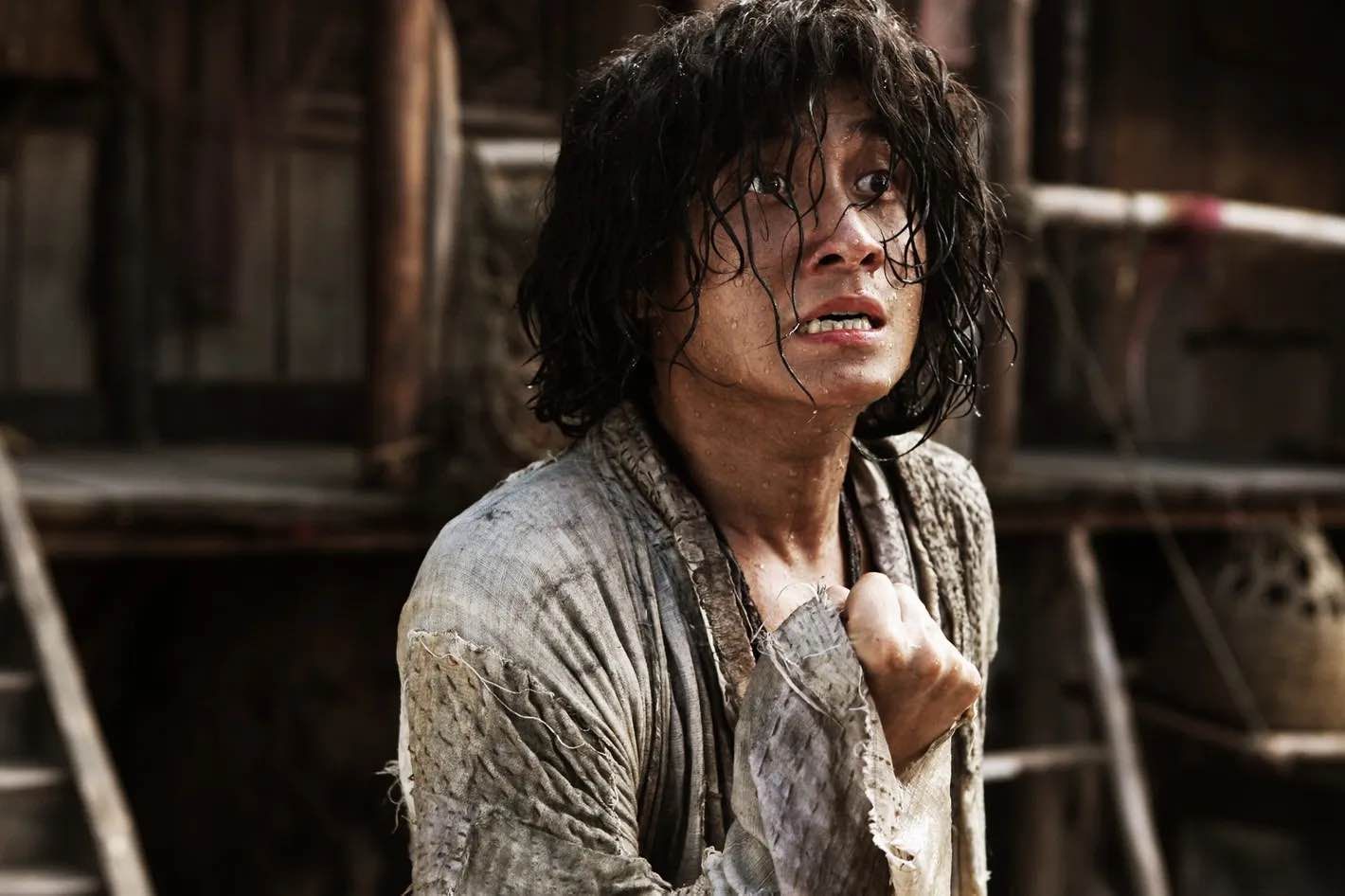
Did yous walk away from Shang-Chi loving the array of fantastical creatures, whether they be ambrosial winged dog things or even massive soul suckers? Then take a journey with director Stephen Chow's Journey to the West: Acquisition the Demons , which has no shortage of mythical "demons" across an adventure that's about as bonkers every bit annihilation that's come from the mind of Chow – which is definitely proverb something.
A sort of prequel to the 16th-century novel "Journey to the West" (attributed to Wu Cheng'en), the story follows self-proclaimed demon hunter Tang Sanzang (Wen Zhang) as he attempts to become a better hunter, encountering numerous mortiferous beasties. In a polar reverse function from her Assassin work, Shun Qi is the resident badass who, like Shang-Chi, has her ain set of magical, demon-busting rings. Chow's silliest sensibilities come up out as he embraces the baroque and the macabre, all before dishing out some wild set pieces – making for a weirdly hilarious fantasy adventure into Chinese folklore.
Kung Fu Hustle
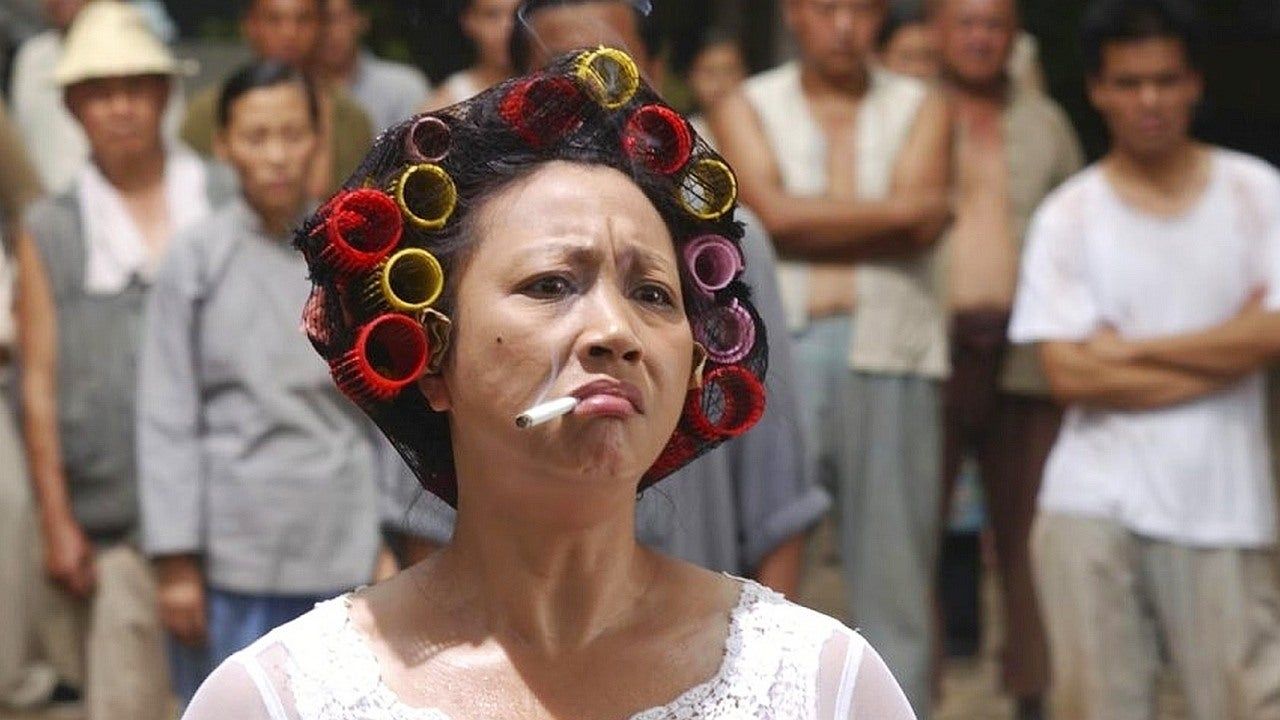
Information technology'southward hard to talk about the modernistic age of martial arts movies without bringing upwardly the atypical, mad heed of Stephen Chow. Kicking down the door with Shaolin Soccer in 2001, he achieved international praise for 2004'south Kung Fu Hustle. This delightfully madcap film tells the story of Sing (Chow), a deadbeat trying and failing to join the Axe Gang, while kung fu masters secretly existing in a poor apartment complex fight off the gang. Simply, really, the plot feels similar an afterthought, because this movie is then securely, hilariously bananas.
A kung fu pic perfect for pic nerds, expect to encounter reference to Jean Renoir, The Shining , and even Spider-Human being – all wrapped up in Looney Tunes -inspired gags that use special effects to pause upwards old-school martial arts action and music, choreographed by Yuen Woo-ping and scored by Raymond Wong. Information technology's a love letter of the alphabet to and so much of what came earlier while operating strictly on its own terms, and if after Shang-Chi you're looking for a martial arts flick that has laughs to go forth with the kicks, Kung Fu Hustle is basically mandatory.
Police Story 1-3
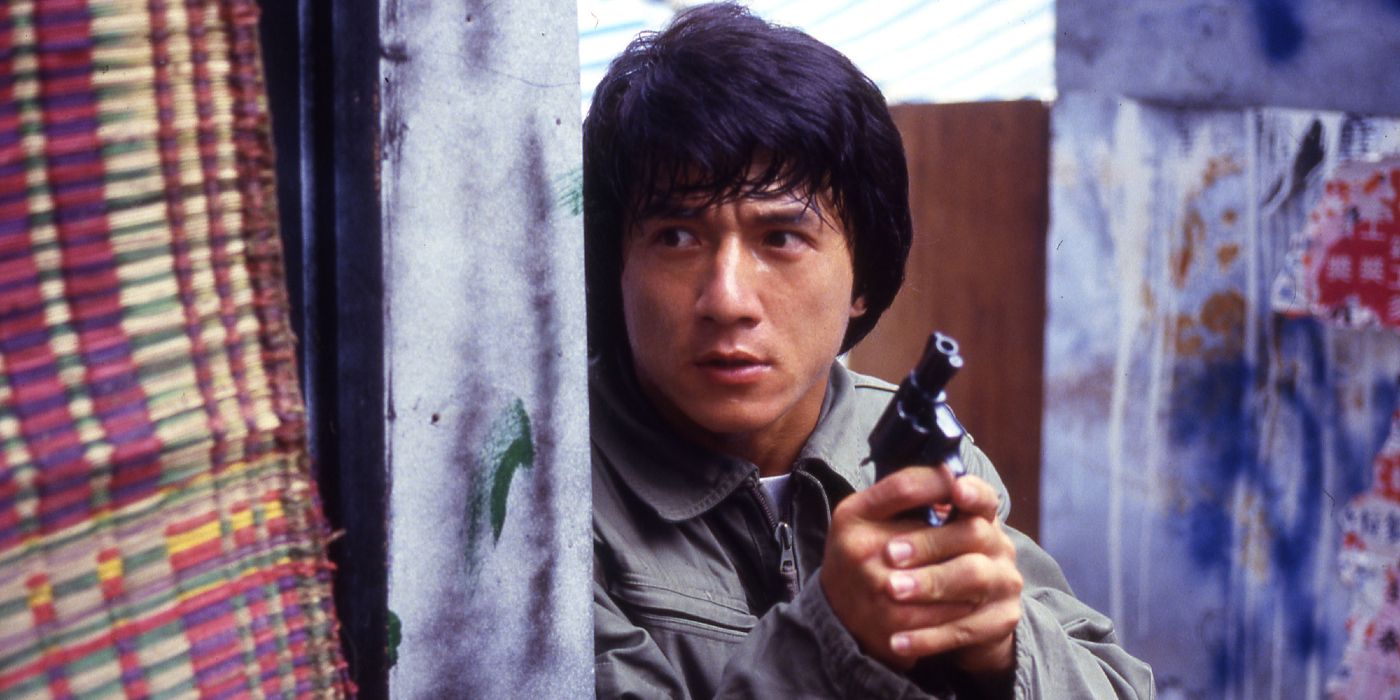
You'll run into a lot of comparisons between Shang-Chi and the films of Jackie Chan, and they are certainly warranted. The fight scenes blend impressive staging and fast fighting with a humour and playfulness similar some of Chan's best films. The peak of those sensibilities comes in the form of not just his first Police Story film in 1985, but also the 1988 sequel and the tertiary outing, Supercop (or Law Story 3: Supercop ). While Chan is a marvel in all three films, with perfect comedic timing to match his flying appendages, the third outing benefits from an on-signal Michelle Yeoh, stealing the testify from even Chan so much that it earned her her own spinoff after this i.
Loaded top to bottom with action sequences that make you lot stop and go "Wait, they actually did that for real?", these are martial arts movies that will benefit viewers new and returning for two principal reasons: i.) Chan is an entertainer supreme, and when operating at elevation wit his boldness is unmatched and 2.) They be nearly as a kind of cinematic artifact, showcasing the level of stunt work and ingenuity for action that mainstream movies wouldn't go in for present. From the opening neighborhood shootout to the helicopter/train set piece of Supercop, these are three movies-worth of action that will blow your mind and tickle your funny os. But we can forget most the spinoffs and reboots that came afterward...
Shadow
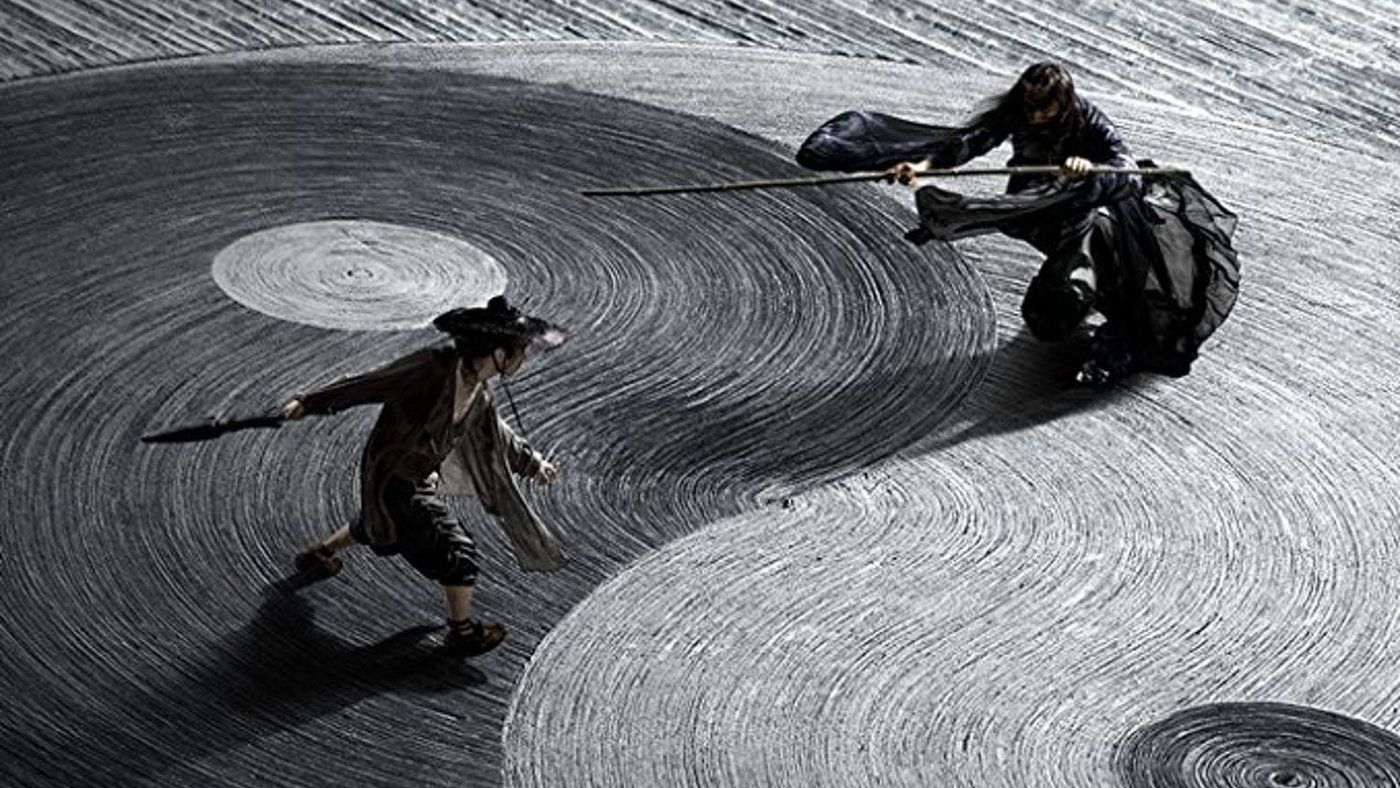
Director Zhang Yimou followed up hero with the equally colorful House of Flying Daggers and Curse of the Golden Flower , merely with 2018'south Shadow, he approached wuxia from a different bending. Trading out bold colors for an exclusively white and black palette, Yimou explored the nature of the Chinese philosophy of yin and yang, and how opposites tend to compliment each other and exist in the same space. Aside from a few training sequences, the beginning one-half of the film leans into the political drama, using the characters to explore this dualism: leadership and cowardice; masculine and feminine; desire and duty; loyalty and betrayal. Yimou digs into his cast of complex characters with his usual sense of visual flair, with truly jaw-dropping cinematography from Zhao Xiaoding, art direction from Kwong Fly Ma, and costume blueprint from Minzheng Chen.
The build-upwards of the commencement one-half leads to a sensational last half, with intricate choreography making apply of complex, mortiferous weaponry for a slew of intense fights. Whether or not it's his best work is up for debate, but Shadow proves that whether he's working with a wide array of bright colors or making simply white and black look endlessly stunning, Yimou is a principal of his craft, combining unforgettable action with compelling drama.
Nearly The Author
jordanginstioniff43.blogspot.com
Source: https://collider.com/best-kung-fu-movies-to-watch-like-shang-chi/

0 Response to "Martial Art Movies to Watch Again"
Post a Comment